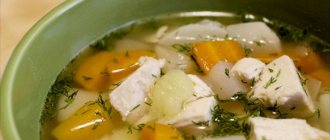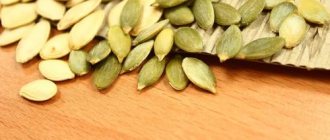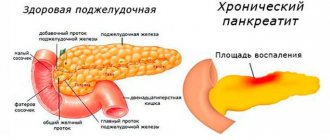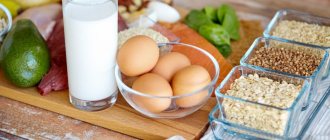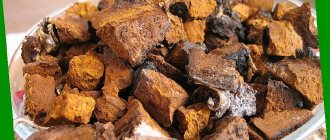Any inflammatory process in the gastrointestinal tract is a real problem for every person. The usual diet needs to be changed and different diets must be followed. This is especially true for patients with pancreatitis. The diet for such a disease should be prescribed exclusively by a doctor. Otherwise, the patient may experience complications, as well as exacerbations of the disease.
Despite this, most people are still interested in which foods can be consumed and which cannot. Fans of various fruits, such as pomegranates, are interested in the question of whether they can be included in the diet for pancreatitis.
Useful properties of pomegranate
Pomegranate is a very healthy fruit. It contains a large number of different vitamins and minerals that have a positive effect on health and the human body. This fruit contains the following vitamins:
- C, P;
- B6 and B12.
These vitamins are actively involved in:
- strengthening blood vessels;
- strengthening the nervous system of the human body;
- improving blood circulation.
Pomegranate and pomegranate juice are especially useful for older people, as well as those who have recently undergone various operations. Pomegranate helps in the fight against tuberculosis and destroys E. coli and dysentery.
The fruit also helps in the fight against diarrhea. And all thanks to the fact that pomegranate contains tannin, which has an astringent effect.
Pomegranate also has a positive effect on the functioning of the body's digestive system. It helps fight exhaustion and is also used as a prophylactic against various cancers.
Benefits and harms
Pomegranate contains amino acids, antioxidants, vitamins and minerals that are important for the body, thanks to which the fruit juice has the following beneficial properties:
- improves blood pressure, vascular tone and blood circulation;
- counteracts athero- and arteriosclerosis;
- has an antibacterial effect;
- increases hemoglobin and immune status;
- protects against radionuclides;
- prevents cell mutation and cancer;
- accelerates the regeneration of gastrointestinal tissue;
- improves intestinal function and appetite;
- relieves swelling and nausea.
The presence of many organic acids (succinic, acetic, tartaric, malic, etc.) and elements that activate the gastrointestinal tract, if not thought through, can harm the condition of the pancreas. If the drink is consumed untimely, the active ingredients can irritate the mucous membranes of the gastrointestinal tract.
Acute pancreatitis and pomegranate
Acute pancreatitis is an acute inflammation that occurs due to the death of parts of the pancreas. Most often this occurs due to poor nutrition and various types of infections. Patients with this pathology must strictly adhere to all doctor’s recommendations, as well as diet.
If you have this type of pancreatitis, pomegranate should absolutely not be eaten. There are reasons for this:
- The flavoring pulp of pomegranates contains a large amount of organic acids, which are a direct source of hydrochloric acid. Malic, acetic, tartaric, boric and other acids enhance the synthesis of enzymes found in the pancreas. This, in turn, contributes to the exacerbation of pancreatitis.
- Pomegranate contains so-called tannins. They have fixing properties, and therefore aggravate intestinal atony.
- Pomegranate components have a slight choleretic effect. Because of this, the enzymes are even more activated and work.
It is for these reasons that pomegranate is strictly prohibited for patients with acute pancreatitis.
Why you should be careful with pancreatitis
It is impossible to insist that it is allowed to drink pomegranate juice as part of a diet against pancreatitis. Pomegranate juice is extremely sour; for the pancreas, which is under painful tension, such a taste turns out to be harmful. The components of the juice actively and aggressively affect the mucous membranes of internal organs, irritating and causing inflammation.
Pancreas
Of the other properties of pomegranate that are contraindicated in patients with pancreatitis, the following facts are noted:
- 100 grams of pomegranate pulp contains from 0.2 to 2.6 grams of organic acids, which increase the acidity of the stomach and stimulate extra work. With an excess supply of hydrochloric acid, the pancreas will be forced to overwork and strain, becoming inflamed.
- If intestinal atony develops in parallel with inflammation of the pancreas, tannins in the product will support the progress of the disease state. Atony occurs during an acute form of pancreatic inflammation, but can linger in the body during persistent remission.
- The beneficial property of pomegranate is choleretic. As soon as the bile ducts actively start working, the pancreas begins to produce special enzymes and becomes intensely tense. This should be avoided if the patient wants to get rid of pancreatitis, and not strengthen the power of pathology over the body.
Pomegranate is a healthy fruit; pomegranate juice for pancreatitis is allowed in conditions of stable remission. Remember that the juice is consumed diluted with water to reduce acidity. Carrot or beet juice will taste better than water.
It is permissible to drink diluted pomegranate juice a week after the exacerbation ends. You need to start with a moderate dose: a teaspoon or a tablespoon.
Sweet varieties of fruit are allowed in the form of pulp. Administration is permitted after a medical report indicating complete recovery from the exacerbation - when the patient does not suffer from symptoms of pancreatitis, blood and urine tests show that the situation is normal. Then it is permissible to ask your doctor’s permission to return pomegranate to your daily diet.
Having returned to remission, you should not pounce on pomegranates and eat fruit after fruit. Be careful when introducing it into your diet: eat a couple of grains and analyze how you feel. If consumption is not accompanied by diarrhea, vomiting, body temperature does not rise, and the stomach does not twist, then the body accepts the product. Gradually you can safely increase the number of grains.
When a pomegranate is absolutely forbidden
There are several known cases of pancreatitis in which pomegranate is completely prohibited, in any form. This includes hunger strikes and strict diets aimed at unloading the pancreas. At such moments, it is better not to take risks, but to take care of the pancreas by eliminating foods high in acid.
Pomegranate is prohibited for children suffering from pancreatitis. The product may be too difficult to digest. A child should be introduced to pomegranate when the child is old enough, adhering to the conditions of remission. You can eat pomegranate fruit, juice, or tincture from the peel (the recipe is described in the article). Drink two spoons of tincture before meals.
Chronic pancreatitis and pomegranate
But sometimes pomegranate can be included in the diet for pancreatitis. This only applies to chronic pancreatitis. But, this is possible only after the doctor conducts comprehensive tests and establishes that parameters such as urine, feces and blood are normal.
If you have pancreatitis, you can only eat pomegranates that are sweet varieties. To begin with, doctors allow patients to eat literally a few grains of this fruit. If the patient does not experience any pain in the stomach and pancreas, nausea or vomiting, diarrhea or fever, then pomegranate can be included in the diet in small quantities.
In case of chronic pancreatitis, pomegranate has a positive effect on the human body:
- strengthens the immune system;
- protects against various inflammations;
- prevents the occurrence of cancer;
- improves the overall tone of the body.
Features of use
Whether it is possible to drink pomegranate juice for inflammation of the pancreas depends on the type of pathology.
How does the simultaneous appearance of gastritis and pancreatitis manifest itself?
In acute form
At the stage of acute pancreatitis, the acidic components of the product, activating the production of gastric secretions and pancreatic enzymes, aggravate the inflammation process. The choleretic components of the drink, promoting increased secretion of bile, also stimulate the secretion of enzymes through an indirect mechanism. Tannins, reducing intestinal tone, contribute to increased intoxication.
Drinking pomegranate juice during the acute period is prohibited. At this time, the patient is prescribed fasting for several days.
Therefore, drinking pomegranate juice during the acute period is prohibited. At this time, the patient is prescribed fasting for several days.
We recommend reading: How to drink potato juice for pancreatitis?
In the chronic stage
In case of chronic disease, the diet can be expanded through the use of pomegranate juice (in the absence of gastritis and peptic ulcers), which, due to its composition rich in useful ingredients, helps strengthen the patient’s weakened health.
If tolerated well and there is no allergy, the pomegranate drink can be consumed diluted, which reduces the concentration of acidic and tannin substances.
Add water, chamomile or chicory infusion, beet juice, oatmeal or herbal decoction to the drink. To avoid harmful effects, even diluted juice should not be consumed in large quantities; drinking 1 glass of liquid per day is enough.
Pomegranate juice can be diluted with water, chamomile or chicory infusion, beet juice, oatmeal or herbal decoction.
During remission
You can take a pomegranate drink after the end of the acute period only during stable remission, after signs of the acute stage (including according to the results of tests and studies) have been absent for 2 weeks. In order not to provoke an exacerbation, juice (in a diluted state) should be introduced into the diet gradually, starting with a minimum (10-20 g) volume. If there is a positive reaction from the gastrointestinal tract to the product used, the portion of juice is adjusted within 7-10 days to a volume of 180-200 ml.
Juices produced in industrial conditions often contain substances that are unsuitable for patients with pancreatitis (dyes, sweeteners, preservatives), so it is better to drink a drink made (preferably from sweet varieties) at home.
Juices produced in industrial conditions often contain substances that are unsuitable for patients with pancreatitis (dyes, sweeteners, preservatives).
Cholecystopancreatitis
In case of cholecystopancreatitis, when the gallbladder is involved in the inflammatory process, the choleretic effect inherent in pomegranate fruits can negatively affect the course of the disease. In case of exacerbations, the product is completely excluded from the diet. In the chronic form, during a period of stable remission, pomegranate drink can be consumed in small quantities under medical supervision, avoiding negative reactions.
How can berries harm you during chronic pancreatitis?
When the stage of remission of chronic pancreatitis is reached, the diet becomes more varied. If the patient feels well for a long time, does not complain of abdominal pain, bowel dysfunction and other symptoms of dyspepsia, then the attending physician may allow him to add pomegranates to the menu, following several rules:
- For the first time, you can eat only 3-4 grains of this fruit. If you feel well after eating pomegranate, its daily volume can be increased to 200 g.
- Pomegranates should be ripe and sweet in taste. Acidic varieties can provoke an exacerbation of pancreatitis.
- The presence of concomitant diseases is taken into account. You should not eat pomegranate if you have diagnosed cholecystitis or cholelithiasis (frequent companions of chronic pancreatitis) in order to avoid serious complications.
If these rules and recommendations of the attending physician (gastroenterologist, nutritionist) are neglected, the useful product will only harm the patient with chronic pancreatitis.
Is it possible to drink pomegranate juice during the acute stage and during remission?
The juice from this fruit is also prohibited from being consumed in case of acute inflammatory process in the pancreas in order to avoid the development of complications. During an exacerbation of pancreatitis, a pomegranate drink causes increased pain, dyspeptic syndrome and the development of severe complications (pancreatic necrosis).
When acute symptoms are relieved and the stage of stable remission of the disease is reached, this healing drink, rich in vitamins, minerals, and antioxidants, can be carefully added to the diet. Doctors recommend drinking only freshly squeezed sweet pomegranate juice. The first time it is consumed in a volume of no more than 1 teaspoon, diluted with water or carrot juice. If it is well tolerated and there are no signs of exacerbation of the disease, the amount of pomegranate juice is carefully adjusted to half a glass per day. You should not drink undiluted pomegranate juice for any form of disease.
Pomegranate, due to its composition, is a very useful product that brings many benefits to a healthy person. Eating it and drinking pomegranate juice for pancreatitis or other diseases of the digestive system (gastritis, cholecystitis, cholelithiasis), as well as for patients with a removed gallbladder, is dangerous due to the possibility of developing dangerous complications (biliary colic, pancreatic necrosis, gastrointestinal bleeding and others). The attending physician may allow this fruit or juice from it to be introduced into the diet only after reaching the stage of stable remission of pancreatitis in the absence of concomitant diseases for which pomegranates are contraindicated.
What juices are medicinal in the fight against pancreatitis?
Potato juice is an excellent remedy in the treatment of pancreatitis.
Potato juice can be a remedy during acute periods of the disease. You need to use potatoes without “eyes”. This juice can be easily prepared in a blender or juicer.
You need to drink 200 ml immediately after preparation on an empty stomach, 2 times a day, this will help get rid of spasmodic and other pain and have a calming therapeutic effect. You can eat food only after half an hour. After drinking the drink, it is best to remain in a horizontal position for some time.
To improve the taste and enhance the effect, it is recommended to mix potato juice with carrot juice. You need to mix 120 ml of juices and drink without dilution. After use, lie down in a horizontal position for about an hour.
Useful qualities of pomegranate juice
In addition to its wonderful taste, pomegranate juice can improve the functioning of many organs of our body. Its beneficial effects include:
- intake of 15 amino acids into the body (6 of them are found only in meat, so pomegranate juice is recommended for vegetarians);
- antibacterial effect (work of phytoncides of pomegranate juice);
- decreased blood pressure;
- counteraction to age-related changes, inflammation, atherosclerosis (pomegranate juice contains a high concentration of antioxidants, there are 3 times more of them than in the famous green tea);
- improved erection;
- stabilization of estrogen levels;
- getting rid of tartar.
Freshly prepared pomegranate juice must be diluted, otherwise it will not only cause a new pain attack associated with pancreatitis, but also destroy fragile tooth enamel.
The right choice of juices
If you have pancreatitis, you can drink fruit and vegetable drinks.
For the correct selection of natural juices, consult your doctor for advice. According to most doctors, you can get useful and important substances (vitamins and microelements) by drinking fruit and vegetable drinks.
This will help improve metabolic processes and strengthen the body's immunity. Natural freshly squeezed juice does not contain fiber, which is contraindicated for people suffering from pancreatitis.
These are the drinks that nutritionists recommend drinking, as they are well absorbed by the body. Different juices have a beneficial effect on different human organs.
To cleanse the intestines, it is better to drink beetroot juice, to improve vision - carrot juice, to enrich with vitamin C - orange juice. However, juices containing acid are highly discouraged. These are juices from the following products:
- cranberries
- lemon
- currants
- grapes
- grapefruit
- sour oranges
For diseases of the pancreas, their use is prohibited even in diluted form. They can cause enormous harm to the diseased organ, which subsequently will be impossible to eliminate. Some reasons for their negative impact are as follows:
- the organic acids they contain irritate the stomach and pancreas
- Insulin production in the blood is activated due to the presence of glucose-increasing substances in the juice, which in the acute period of pancreatitis can lead to more serious diseases such as diabetes mellitus
- fermentation and bloating caused by the presence of simple carbohydrates in fruits
- the content of allergens in some juices can cause disruption of the pancreas
- Therefore, if you have pancreatitis, you can drink juices, but be careful, as experts would say.

